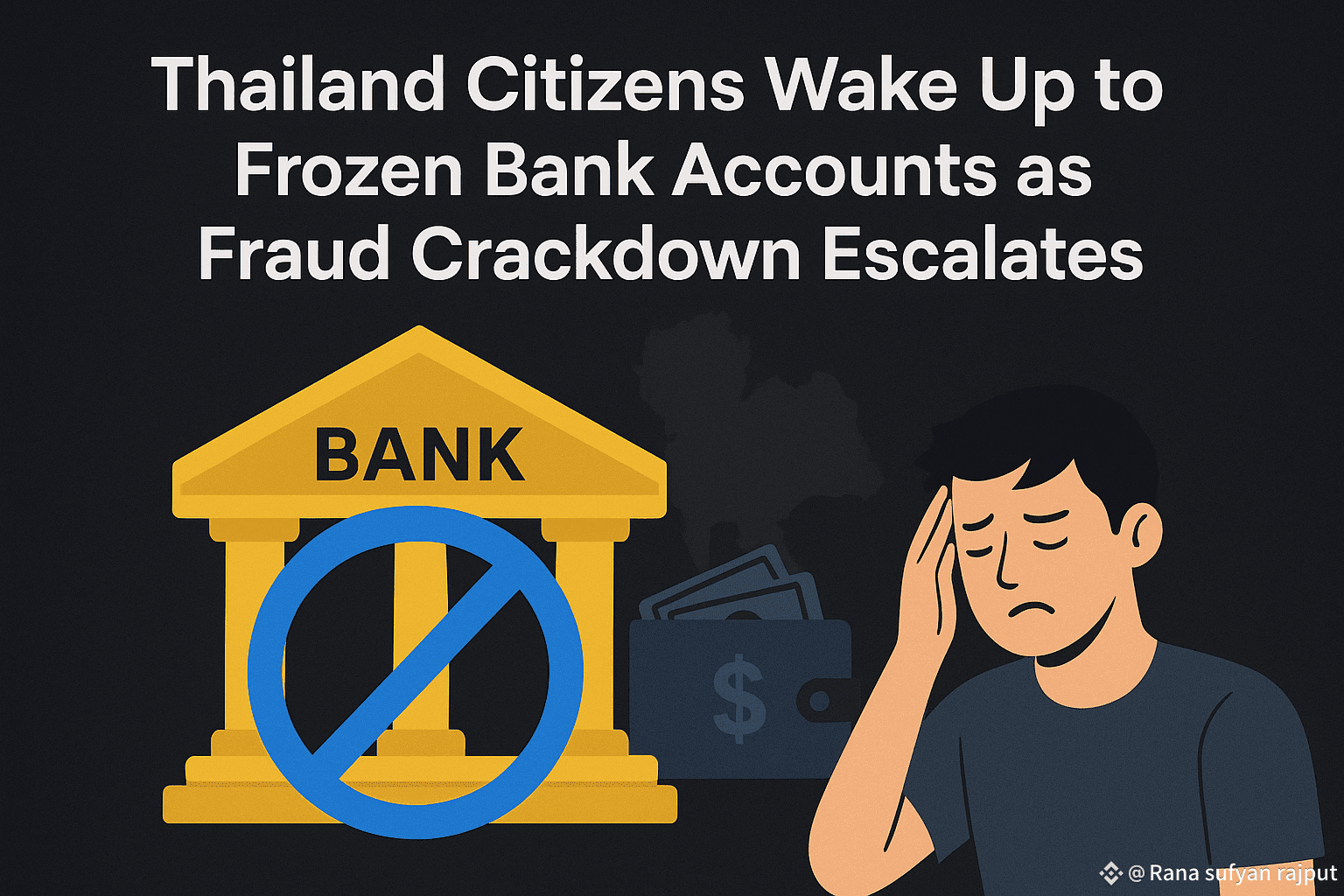Millions of Thai citizens found themselves locked out of their savings this weekend, as a sweeping state-backed crackdown on suspected scam-linked accounts froze access to funds across the nation.
According to reports from Thailand’s Cyber Crime Investigation Bureau (CCIB) and local media, as many as three million accounts were suspended. The move comes amid a surge in online fraud and money laundering cases—but ordinary families, vendors, and small businesses were also caught in the dragnet.
Banking Freeze Began in August
The campaign began in August, when Thai banks partnered with the Anti-Online Scam Operation Centre (AOC) and the Bank of Thailand (BoT) to introduce tighter transfer limits and heightened monitoring of accounts.
Daranee Saeju, assistant governor at the BoT, said that only accounts linked to mule activity should have been frozen:
> “Only accounts that received money from mule accounts have been frozen,” Daranee explained. “The AOC and commercial banks are expanding their probe to return as much money as possible to victims.”
However, authorities admitted that the crackdown blurred lines between fraudulent activity and legitimate trade. Scammers reportedly used new laundering tactics, such as buying goods from real sellers and then reselling them for cash—raising suspicions even for honest vendors.
One case cited by police involved a child’s account receiving 100,000 baht from scammers, who then tricked the child into forwarding the money. The family’s account was flagged and frozen, though no charges were filed.
“War Room” Launched for Complaints
As public anger grew, Thailand’s Digital Economy and Society (DES) Ministry announced the creation of a “war room” to handle a flood of complaints. Hundreds of calls have been received daily from people whose funds remain locked.
Officials stressed that many suspensions were not permanent freezes:
> “This is not an account freeze in the strict legal sense,” said DES official Wisit Wisitsora-at. “Other balances and transactions remain usable.”
Suspensions are reviewed based on transaction patterns, money flows, and behavioral anomalies, with cleared accounts reinstated “within minutes.” Still, a banking system error on September 1 further fueled confusion by preventing balance updates for some users.
Balancing Security and Trust
While the BoT promised to revise procedures with commercial banks and the AOC, critics warn the operation risks undermining trust in Thailand’s financial system.
Attorney Sasha Hodder, founder of Hodder Law, criticized the policy:
> “Citizens were better off using crypto because they can’t freeze Bitcoin.”
The CCIB has since deployed additional officers to review cases, and victims have been urged to file reports at local police stations or via hotline numbers.
The Bigger Picture
Thailand’s mass account suspensions highlight the tension between fraud prevention and financial freedom. While authorities aim to protect citizens from scams, the sudden freezing of millions of accounts has left many questioning whether the centralized banking system is fit for purpose in a digital economy.
For crypto advocates, the events serve as another reminder of why decentralized assets like Bitcoin and stablecoins are viewed as an alternative to traditional finance—your money, always accessible, without fear of sudden freezes.
---
👉 Looking for alternatives?
Trade and store crypto securely with Binance.
Please 🙏 follow me Thank you 😊

